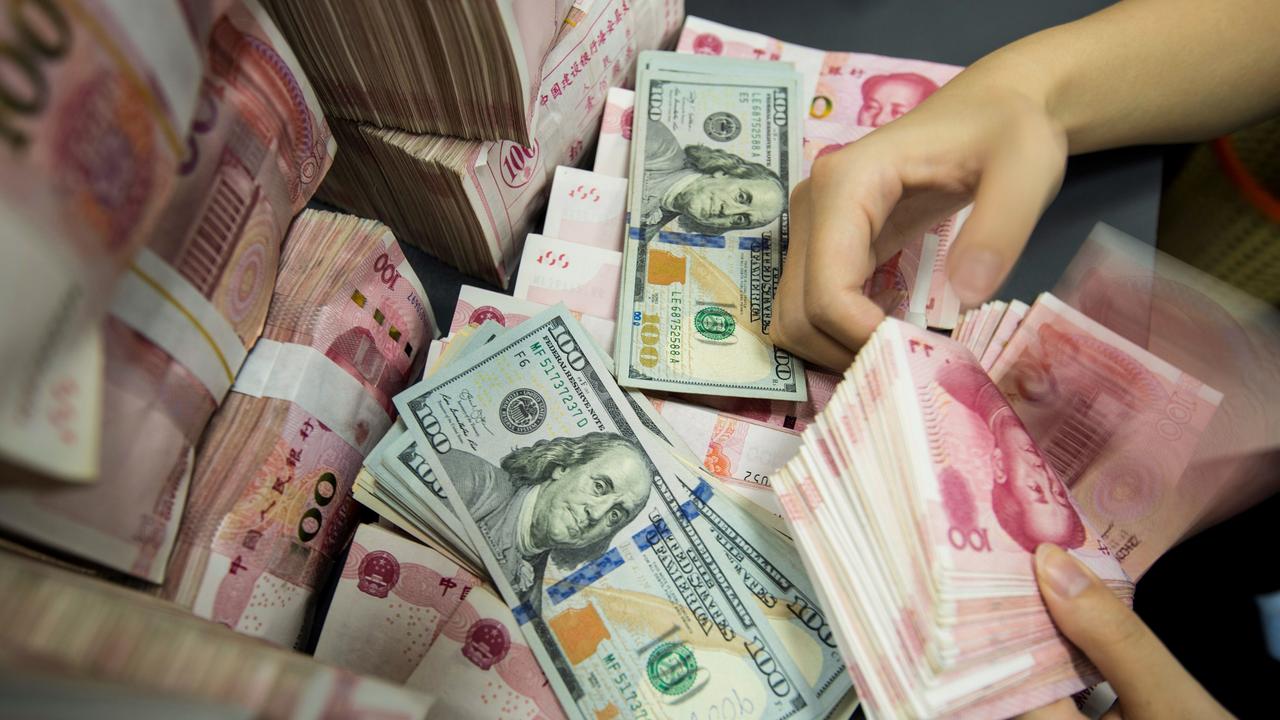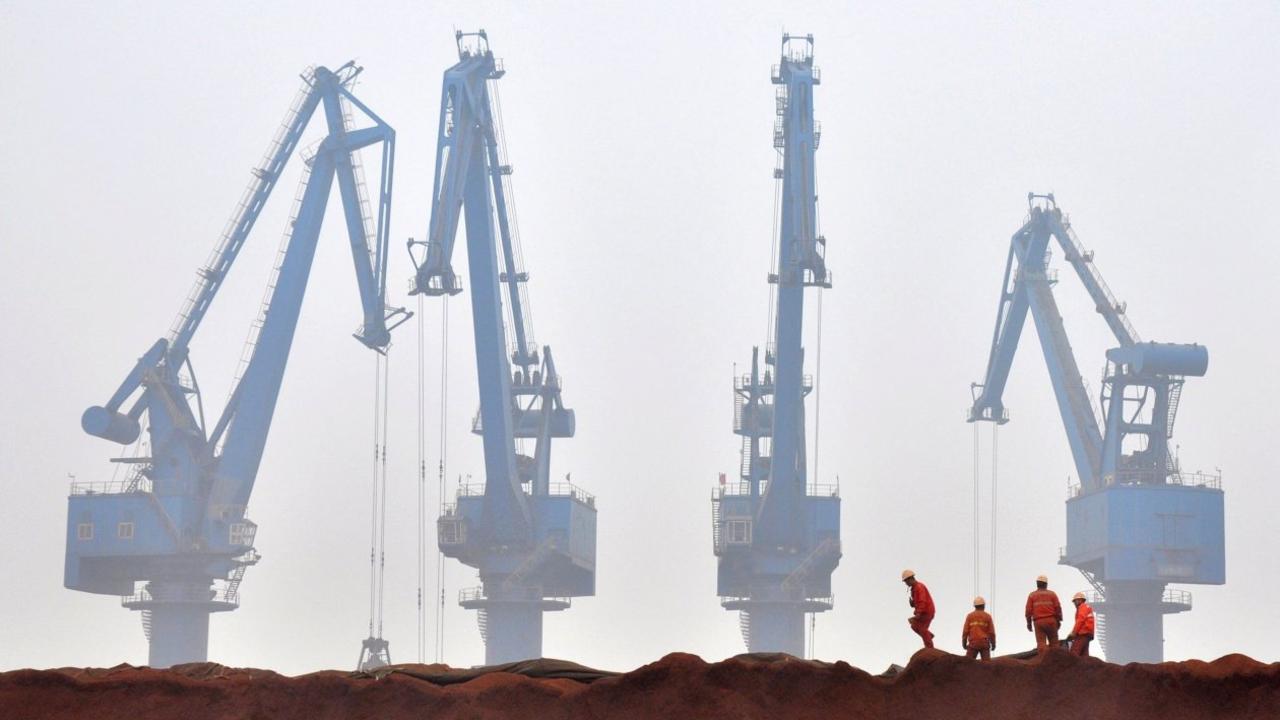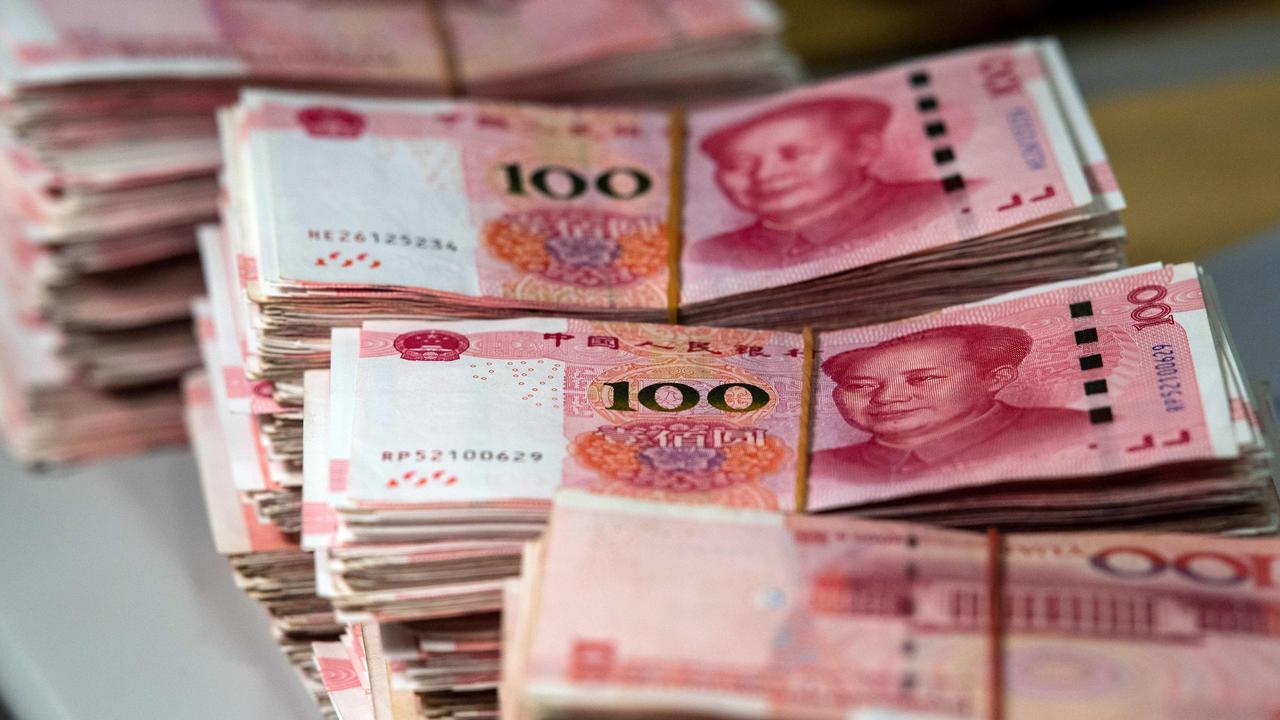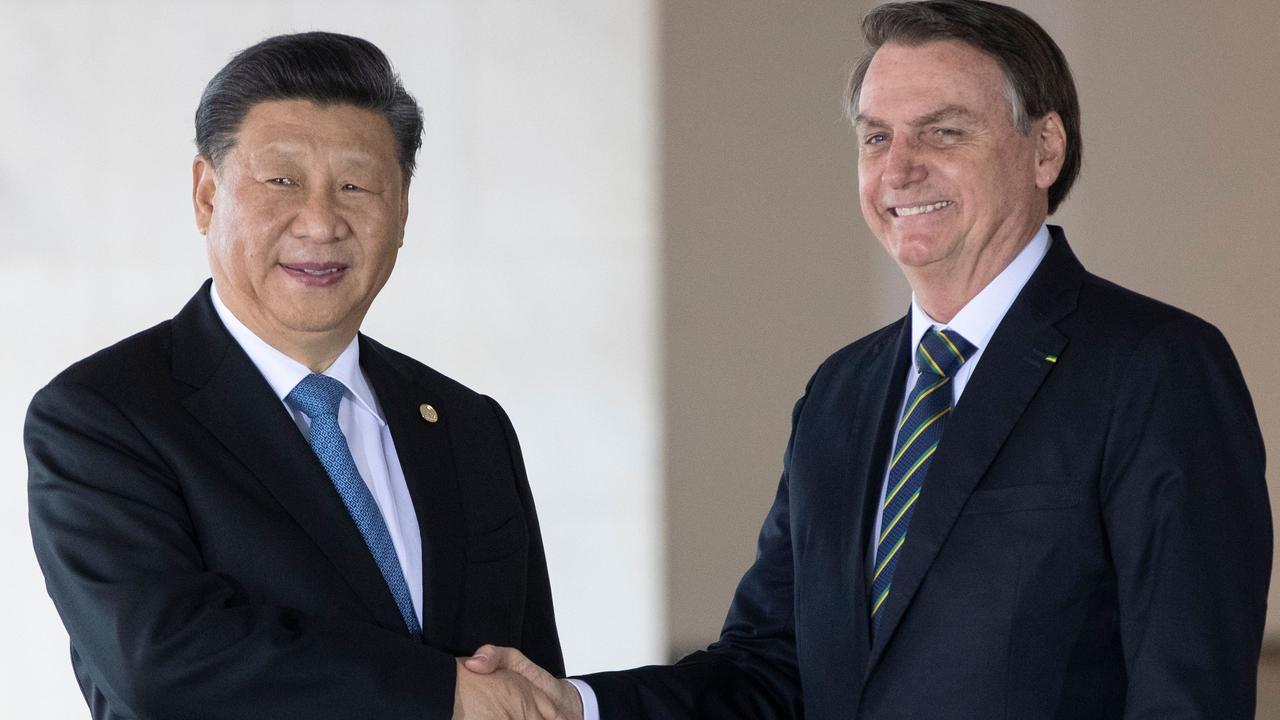You are using an out of date browser. It may not display this or other websites correctly.
You should upgrade or use an alternative browser.
You should upgrade or use an alternative browser.
Miscellaneous News
- Thread starter bd popeye
- Start date
One of the world’s top bullion buyers, China shipped in more than 80 tons from Switzerland in July, according to Swiss Federal Customs Administration. That’s more than double the previous month and eight times more than in May.
I mean, the Swiss did say they were going to sanction China in event of reunification, what did you think was going to happen?
Remember how Westerners mock China for their 'Clean Plates Campaign'? Oh, how the turntables.
antiterror13
Brigadier
whatttt????? do you understand what orang utans means ?
Based Indonesia. Not afraid of Konfrontasi.
Maybe Indonesia should merge with Malaysia and create a regional hegemon of Orang Utans.
Iron ore from Australia seem to be hardest to replace for some reason. I heard reasons like it’s more high grade or something, mining operation Australia is very developed, transportation costs etc.Who cares what American dogs think, lol. China should continue reducing all sorts of imports from Australia and replace them with countries from the Global South. Most of the Australian exports could be easily sourced from friendly\neutral African\South American countries because Australian economy is low tech, based around mining & agriculture.
the rest of imports from Australia already been reduced, wine, lobsters, coal etc
The Reason, Among the Australians they're willing to accept Chinese Yuan as payment.Iron ore from Australia seem to be hardest to replace for some reason. I heard reasons like it’s more high grade or something, mining operation Australia is very developed, transportation costs etc.
The Russians are forcing European countries to pay in roubles for their gas. Australia has made a good move by offering China an alternative to US dollar payments for iron ore,” said Macquarie University economist.
“Better to offer than be forced.”
Jul 18, 2022 — And it's not the first time mining giant BHP has accepted payment in yuan. In May 2020, it delivered a cargo of Brazilian iron ore to ...
China’s secret victory against Australia in trade war
The US dollar might be a thing of the past when it comes to global trade, as Australia’s iron ore industry welcomes this new payment method.Treasurer Jim Chalmers says China lifting its trade ban on Australian goods would be a “very welcome development". Mr Chalmers said it had not yet been confirmed China would be lifting trade ban on Australian goods. “We’d like to see it happen … that would be a welcome step,” he told Sky News Australia. “We’d like to see it…
A ship carrying Australian iron ore docked in China’s Shandong province last week. As Australia’s biggest buyer, there’s nothing unusual about that. What was remarkable was how that iron had been paid for.
The transaction had been in Chinese yuan. Not US dollars.
The Beijing-controlled Global Times saw this as a small – but significant – victory.
“Australian firms understand they cannot always play by their own rules in business partnerships with Chinese clients, their largest global buyer, and the use of the Chinese yuan for trade is a positive change,” it quoted East China Normal University Australia Studies director Chen Hong as saying.

In a push to place the Chinese yuan on the global trading stage, China has paid for Australian iron ore in yuan.
Beijing is continuing its push to put its currency, the yuan, on the world stage as a significant trade currency. But, since being listed by the International Monetary Fund as an international reserve asset in 2016, it’s failed to gain headway.
Its use to pay for the cargo of the BHP iron ore carrier Vittoria two weeks after it departed Port Hedland in Western Australia may represent the economics and politics of the moment more than any long-term trend.
“The Russians are forcing European countries to pay in roubles for their gas. Australia has made a good move by offering China an alternative to US dollar payments for iron ore,” said Macquarie University economist.
“Better to offer than be forced.”
Market forces
Despite soaring tensions, trade with China represented 29 per cent of Australia’s total imports and exports in 2020. It climbed to record levels in 2021.
That makes China three times more valuable than Australia’s second biggest market – the United States.

Shown, workers prepare iron ore from Australia to be transported to a port in Tianjin, China. Picture: Vincet Du/Reuters
And it’s not the first time mining giant BHP has accepted payment in yuan.
In May 2020, it delivered a cargo of Brazilian iron ore to China’s Baowu Steel Group – the world’s biggest steelmaker.
“The fear of China sourcing alternative supplies of iron ore from Brazil and Peru is a real threat,” said Dr De Melo.
“BHP’s move with iron ore is certainly a good one.”
Nor was it alone. At the same time, Baowu said it had struck similar deals with iron-ore firms Vale, from Brazil, and Australia’s Rio Tinto and Fortescue Metals Group.
“Australia’s iron ore is the best in the world, and China will be dependent on it for many decades,” he said.
“The US dollar has dominated world commodity trading for far too long. We need alternative currencies to trade.”
It’s the economy, stupid
“The launch of the yuan-based trade in iron ore marks an important step for the Australian company to get closer to the Chinese market, while balancing the possible risks and uncertainties from the US dollar ignited by high US inflation,” the stated.

The Chinese yuan is “pegged” at one-seventh the value of the US dollar in order to appear as a more stable currency.
The US dollar is a free-floating currency. That means its value is determined by the performance of the US economy, comparative global interest rates and other market forces.
The Chinese yuan is pegged. The central government in Beijing has arbitrarily set its value at about one-seventh that of the US dollar to make its exports more appealing.
In bullish conditions, the US dollar looks very attractive.
In a bear market – with soaring inflation and interest rates – pegged currencies look more stable.
“With global inflation well underway, all currencies have depreciated against the US dollar,” said Dr De Mello.
“The dollar is likely to continue climbing with rising interest rates. The latest inflation data in the US supports this.”
That makes the US dollar more expensive for countries – and multinational corporations – to use as an exchange currency.
“The high USD is having a profound impact on countries that import a lot of minerals like iron ore,” Dr De Mello added.
A matter of value
Beijing has made no secret of its desire to topple the US dollar with its yuan as the world’s reserve currency – the payment of choice in international trade.
Last month, it brought Brazil, Russia, India and South Africa – the BRICS group – together to plan just such a new global currency based on pooling their cash together.

Brazil's President Jair Bolsonaro (R) and China's President Xi Jinping shake hands before the 11th BRICS Summit at the Itamaraty palace on November 14, 2019 in Brasilia, Brazil. Picture: Pavel Golovkin
Beijing also said it hoped to build a global exchange yuan reserve with Hong Kong and Singapore to ease its availability for large international transactions.
But the artificially pegged nature of many of these currencies remains a severe roadblock. And the yuan is not freely convertible to other currencies: The Chinese Communist Party is unwilling to relinquish control of its value to market forces.
The US dollar, however, is freely convertible. This, and being tied to a robust economy and its long stable history, has seen it embedded in global capital markets.
But its appeal has been in slow decline in recent decades.
And the yuan has so far failed to capitalise on this. Only one-quarter of the shift has gone towards Beijing, which now holds about 2.9 per cent of global cash reserves.
International central banks have instead chosen to diversify their options through non-traditional reserve currencies such as the Australian dollar, South Korean won and Swedish krona.
The European euro is the world’s second-biggest currency – and a long way behind the dollar.
Last edited:
Correction: they said they will match whatever sanctions Germany will use... So if Germany does nothing or something incredibly small...
I mean, the Swiss did say they were going to sanction China in event of reunification, what did you think was going to happen?
Still a stupid move and besides, Switzerland already bent the knee during Obamas time cuz America wants everyone’s money. Swiss banking secrecy belongs in the 80s. Irrelevant in the modern era.Correction: they said they will match whatever sanctions Germany will use... So if Germany does nothing or something incredibly small...

